Molippa basina
Maasen & Weyding, 1885
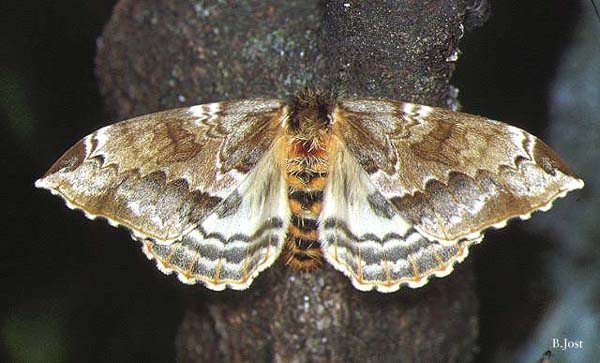
Molippa basina moth courtesy of Bernhard Jost.
TAXONOMY:Superfamily: Bombycoidea, Latreille, 1802 |
ChiquititaON.OFF |
|
|
Updated as per Lemaire's Hemileucinae 2002,
June 13, 2009 |

TAXONOMY:Superfamily: Bombycoidea, Latreille, 1802 |
ChiquititaON.OFF |
It is smaller than M. nibasa and M. simillima, and the hindwing discal spot of M. basina is usually quite prominent.
Note the turquoise-blue colouration of larva. Also note the yellow-brown head.
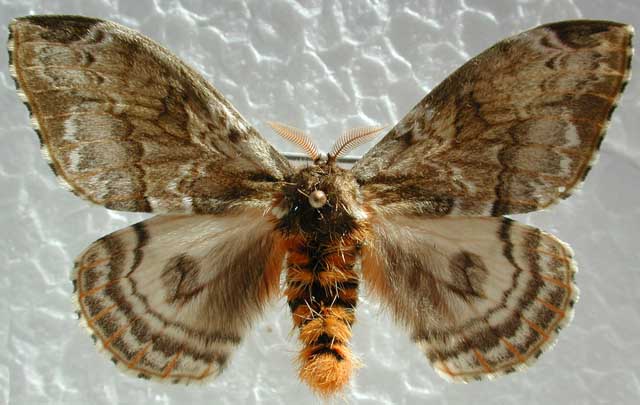
Molippa basina male, Venezuela,
courtesy of Eric van Schayck.
Larvae have been reared in captivity on Salix.
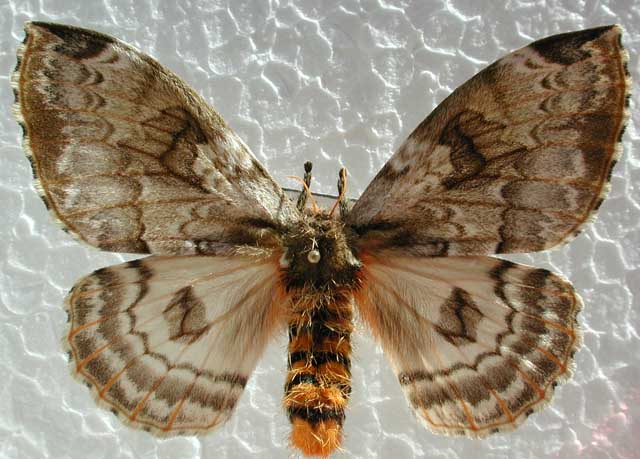
Molippa basina female, Venezuela,
courtesy of Eric van Schayck.
EGGS, LARVAE COCOONS AND PUPAE:Eggs are deposited in clusters and larvae feed gregariously. Typical of Hemileucini species, larvae have urticating spines.Image (larva on privet) courtesy of Viktor Suter via Bernhard Wenczel. |
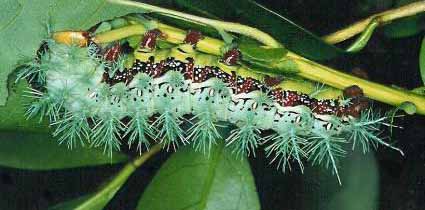 |
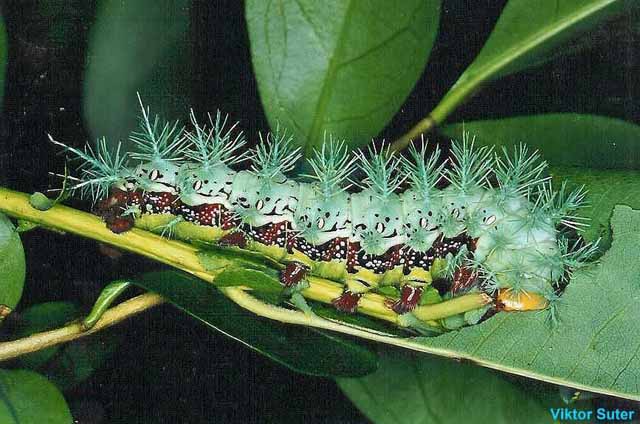
Ligustrum |
Privet |
Return to Molippa Genus
Return to South American Saturniidae Direcotry
Return to Main WLSS Index
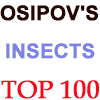
|
 Support this website and visit other insect sites by clicking flashing butterfly links to left or right. |

|